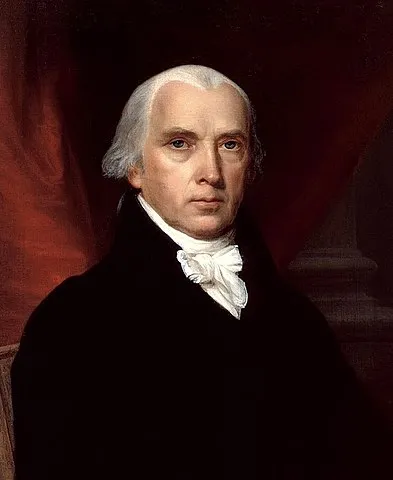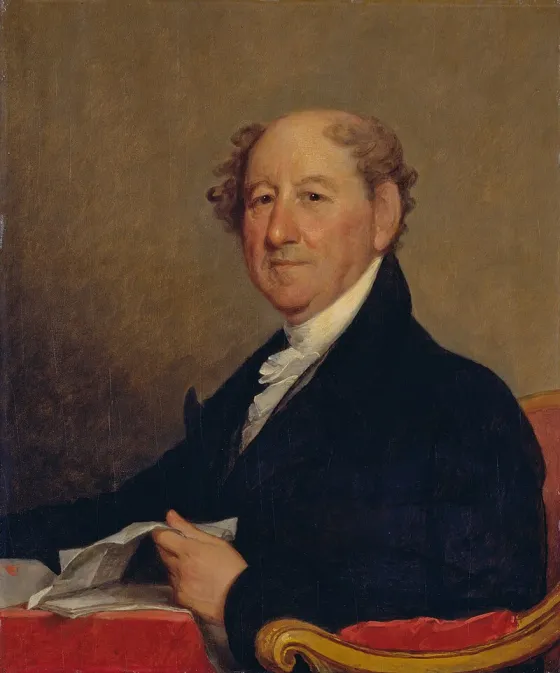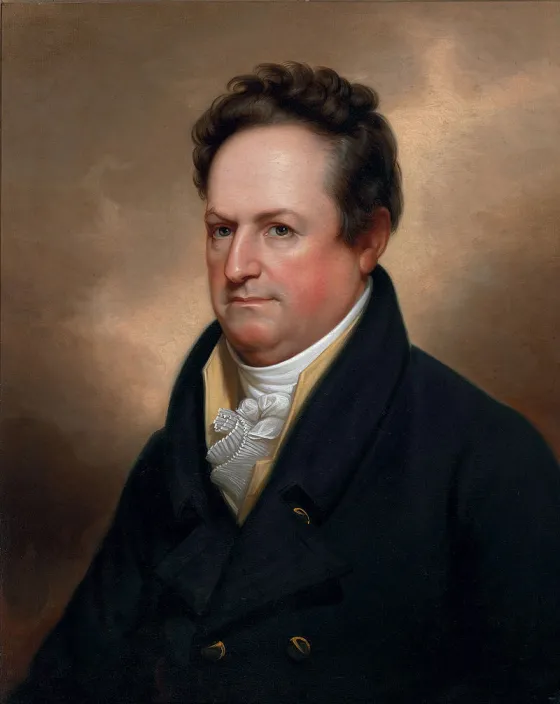The Election of 1812

On October 14, 1812, incumbent president, James Madison, wrote to his friend and former president, Thomas Jefferson: “The current Elections bring the popularity of the War or of the administration, or both, to the Experimentum Crucis.” Madison’s Latin phrase highlighted the “crucial experiment” that the Election of 1812 presented to the nation since it would be the first presidential election held during a major war involving the United States.
The War of 1812 officially began on June 18, 1812, when President Madison signed Congress’s declaration of war against Great Britain. Already called “Mr. Madison’s War” by its opponents, the presidential election would give eligible voters a chance to make their opinions heard on the conflict and the Democratic-Republican Party. The struggling Federalist Party nominated Rufus King for president while De Witt Clinton ran with the support of anti-war Democratic-Republicans and some Federalists. James Madison ran for a second term in office with the support of the Democratic-Republican Party.

James Madison—“Father of the U.S. Constitution,” advocate for the Bill of Rights, congressman and eventually Secretary of State during Jefferson’s presidency—had won the 1808 presidential election by a landslide and furthered the goals of the Democratic-Republican Party. During his first term, he had continued Jefferson’s trend to push settlements further west and also continued to pressure Britian to allow American freedom of trade. Escalations with England—like the Chesapeake Affair and other incidents of continued impressment of American seamen—led to Madison asking Congress for a declaration of war to defend the United States sovereignty as a nation.

The Federalist Party’s power and influence was on the downward slope, but they still nominated a presidential candidate in 1812: Rufus King. A lawyer, Constitution Signer, former Senator and diplomat, King hailed from Massachusetts and was a traditional Federalist candidate.

De Witt Clinton had been a U.S. Senator, representing New York, and had also been mayor of New York City and lieutenant governor of his home state. He encouraged the pursuits of American arts and science and strongly supported the construction of the Erie Canal which would allow better transportation in New York state. In the Election of 1808, Clinton’s uncle had run against Madison, but by 1812, it was younger Clinton’s turn. As a presidential candidate, De Witt Clinton gather support from the fading Federalist Party and from Democratic-Republicans who opposed the War of 1812.
When the votes were counted, Madison had won a second term in the executive office, and he would see the War of 1812 through its conclusion in 1815. Madison received 52.3% of the popular vote and 128 electoral votes—19 more votes than he needed to win. King got 2.1% of the popular vote and no electoral votes. Clinton pulled 45.4% of the popular vote, drawing from Federalists and disgruntled members of Madison’s party, but only received 89 electoral votes.
The Election of 1812 set an important precedence that the United States would carry on with elections and—if need be—peaceful transfers of power during times of war. Madison’s election victory allowed the War of 1812 to continue and revealed the political crumbling of the Federalist Party.





